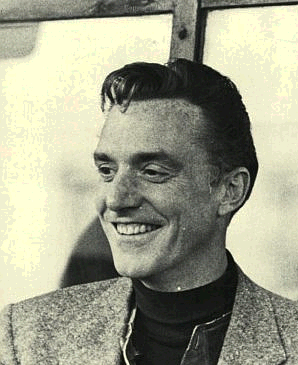In my note on Mark Mirsky’s memoir, Creeley, I wrote that “When someone who is important to a lot of people dies, the survivors stand around and tell stories.” That reminded me of a book I picked up when I was in
I never could make anything work out right and now I'm betraying my friends. I can't make anything out of it - never could. I had great visions but never could bring them together with reality. I used it all up. It's all gone. Don Allen is to be my literary executor- use MSS at
Welch’s body was never found.
The outline of Welch’s life is fairly well known & Hey Lew dispenses with it quickly, printing literally on page one Levi Asher’s bio note, still available on the web via the
The book really begins on the next page, with the transcript of a recorded conversation between Hey Lew’s editor Magda Cregg, her son rocker Huey Lewis & actor Peter Coyote. Cregg was the last – and longest – of Welch’s relationships, Lewis functionally his stepson. (Lewis took Welch’s first name for his last when he joined the band Clover.) This is the first of many such reminiscences, transcriptions, poems, and photographs & drawings. Some of the reminiscences are harder to read than others – Lewis Mac Adams, for one – just because Welch was a guy clearly in trouble & his friends knew it without understanding what, if anything, they could do. The poetry, elegies for the
most part, feels a little more reserved. The photos are a marvel. Lew as a 12-year-old along side his sister Gigs, Lew directing a full-moon mussel gathering in the tide pools of Muir Beach, some tremendous shots of Lew with others, from Jeff Cregg to Mary Norbert Korte, or sitting on a log by the beach with Margo Patterson Doss, Donald Allen, Joanne Kyger & Dr. Hippocrates (one of the first free medicine / alternative healing MDs to function as a newspaper columnist in the Bay Area).
This book was put out in 1997, three dozen years after Lew disappeared. Ten years later, it’s still a great read. Some of its other contributors include Robert Creeley, Bill Deemer, Greatful Dead lyricist Robert Hunter, Coyote’s Journal editor Jim Koller, Michael McClure, David Meltzer, Joanne Kyger, Albert Saijo, Grover Sales, Gary Snyder & even neocon gadfly Stephen Schwartz, plus at least as many others who may be a little less famous. Lawyer Richard Hughey’s five-page memoir of his time as a student of Lew’s and of the scene in
Welch, like John Wieners, Jimmy Schuyler, Hannah Weiner, Robert Lowell & too many others, is a perfect example of how poetry is quite possibly the one profession in which mental illness is not a handicap. At the same time, the very real day-to-day issues of living in a society that at its best struggles with how to include these psychiatric Others into the community can be overwhelming. Certainly Welch found it so. We are lucky to have gotten so many wonderful poems out his relatively short time – just 45 years – among us.






